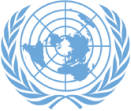Madame President,
I have the honour to deliver this statement on behalf of the Member States of the Association of Southeast Asian Nations (ASEAN). We align ourselves with the statement delivered by Cuba on behalf of the Group of 77 and China.
Madam President,
1. We meet amid a highly challenging environment of uncertainties over the geopolitical tension, disrupted supply chains, increased pressure on food security together with the adverse impacts of climate change and covid-19 pandemic, the weak global and regional economic outlook, tighter global financing conditions, rising global interest rates, debt distress, high inflationary pressures and the recent heightened volatility in the global financial markets which are not only threatening to countries but also global sustainable development prospects.
2. Despite the slightly downward trend, ASEAN has maintained macro-economic stability. In 2023, ASEAN economic growth is collectively forecasted to reach 4,6% and projected to be increased to 5,6% in 2024. Nonetheless, ASEAN also face several challenges which include high interest rate, high inflation, lowered growth prospects in trade[1].
Madam President,
3. To address the spill-over effects from global economic challenges, ASEAN have underscored the importance of strengthening macroeconomic policy mix and financial system stability, by advancing policy synergy between fiscal, monetary, and financial sectors which aims for supporting strong, sustainable, balanced, and inclusive economic growth. In this regard, we would like to highlight some of the important progress and commitment made toward the ASEAN Financial Cooperation Frameworks[2], the core elements to support the development including:
4. First, ASEAN Finance Ministers welcome the initiative on collaboration with related sectoral bodies to contribute to financing food security to foster prosperity and stability in the region. ASEAN also stress on the collaboration between Public Health and Financial sectors to strengthen regional health capacity, including conducting gap assessment of the global financing and existing international financing mechanism for pandemic prevention, preparedness, and response (PPR) and working on the report on modalities for a possible regional facility for public health emergency response fund and participation in global pandemic PPR.
5. Second, ASEAN develops the roadmap for Monetary and Financial Integration and Cooperation which is a key component to achieve the ASEAN Economic Community (AEC) 2025 in areas including: strengthening the financial integration and liberalisation, customs, and tax cooperation to promote trade and investment facilitation and further developing the financing, payment and service connectivity and financial inclusion.
6. Third, ASEAN sustainable Infrastructure Financing which ASEAN assigned the ASEAN Infrastructure Fund’s (AIF’s) to further efforts in mainstreaming into its permanent operations the ASEAN Catalytic Green Finance Facility (ACGF) to provide financing and technical support to ASEAN’s green recovery and support to strengthen climate investment planning, including through a high-level ASEAN dialogue on financing climate transitions.
7. Fourth, Sustainable Finance has become very crucial where ASEAN has completed the ASEAN Taxonomy for Sustainable Finance (ASEAN Taxonomy) Version 2, which encompasses decision trees, guiding questions and use cases for classifying green and transition activities under the Foundation Framework (complete framework), as well as technical screening criteria (TSC) for the Energy sector under the Plus Standard which set out science-based metrics and thresholds for the classification of economic activities that contribute to Paris Agreement-aligned goals. Reflecting the region’s urgent need for energy transition, the ASEAN Taxonomy Board has prioritised the TSC for the Energy sector as the first of the ASEAN Taxonomy’s six focus sectors.
8. In addition, Disaster Risk Financing is an important key area of ASEAN financial cooperation to help policymakers such as ministries of finance and insurance regulators quantify their financial exposure to natural disasters, assess the gap from existing contingency financing, adopt effective natural disaster risk management and reinsurance solutions on an ex-ante basis, and plan for targeted capacity building to enhance financial resilience.
9. Last but not least, Dialogue with the International Financial Institutions and Business Councils on the exchange of views on macroeconomic policies and discuss relevant regional and global issues. ASEAN member states recognised their significant roles and contributions towards ASEAN’s economic development and advancing regional post-pandemic economic recovery towards sustainable, resilient, and inclusive growth.
Madam President,
10. To conclude, financing for development is fundamental to the 2030 Agenda, especially to bring back the SDGs on track. ASEAN reaffirms its commitment to contributing to the collective efforts and collaborations of the international community in promoting sustainable finance for all.
I thank you.

